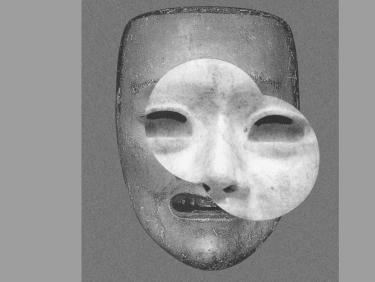Cluster of Excellence 270 Asia and Europe in a Global Context: The Dynamics of Transculturality
ATTENTION: This page and its sub-pages reflect the state of 2018. They are meant for documentary purposes and are not updated any longer.

Research Agenda
The Cluster “Asia and Europe in a Global Context” explored a complex historical relationship of great relevance for the global transformations of our time. This relationship is characterized by competition and conflict as well as cultural interactions ranging from migration and trade to the formation of concepts and institutions. The study of asymmetrical relations of power and exchange and of the energies released by their perception resulted in the formulation of the more comprehensive research approach “Dynamics of Transculturality”. It was focused on the paradoxical duality of culture as both a marker of identity and a fluid moment in the continuous process of global interaction. The Cluster fully explored this new approach in research and methodology in close cooperation with the relevant disciplines.
In its research, the Cluster addressed scholarly challenges that have a deep resonance with the major political, social and cultural issues in our world, e.g. cultural and economic asymmetries, mobility, migration and social identity. The dramatic increase in the volume and speed of global circulation and interconnectedness has fundamentally challenged the viability of a scholarly approach that takes the nation state as its default mode. It has also thrown light on the large-scale prevalence of such transcultural exchanges throughout human history. At the same time, asymmetries characterising these exchanges mobilise tense and conflicting energies that have great poignancy, and are little understood. These were at the centre of the Cluster’s research.
The humanities and social sciences are just beginning to respond to challenges that are not defined by geographical, historical, social and political boundaries. Only in recent years have they abandoned traditional concepts of cultures and nations as self-sufficient and homogeneous units based on territory, language, race or ethnicity in favour of less static notions that account for the intrinsic complexity, diversity and permeability of human communities. Yet it becomes increasingly obvious that advances in this vital area are hampered by a globally shared academic order of things that perpetuates 19th-century European presumptions. As a result, existing disciplinary practices are prone to direct attention away from the very processes of transcultural exchange and interaction through which cultures, nations and other forms of human association constitute themselves and others.
On the basis of these assumptions the Cluster set out:
- to broaden its research base in an effort to map the horizon of transculturality and assess gradations of cultural exchange intensity, as well as the different dynamics these involve;
- to foreground research questions, identify source materials and foster research practices that have been sidelined by an approach characterised as ‘methodological nationalism’ and to replace this nation state- or area-based ‘default mode’ of academic enquiry with a platform that gives transculturality its due place as a key constituent of culture;
- to explore transculturality as a heuristic tool that also, and increasingly so, has real-world counterparts ranging from cosmopolitan lifestyles to utopian dreams to global institutions in which the transcultural and the global are dimensions in their own right, and not just the sums of essentialised cultures, territories or nation states;
- to trace cultural elements in the historical trajectory of their genesis and adaptation as well as the dynamics of their interaction as parts of a shared frame of reference;
- to develop methodologies optimised for transcultural studies in a critical reflection on their own tacit assumptions and consequences, and an equally critical engagement with the tacit
implications of the inherited disciplinary and methodological approaches and their consequences; - to test the applicability of a transcultural approach to the study of the relationship of the present with history under the assumption that the historical continuity and spatial homogeneity of the nation is part of its narrative of identity.
In order to pursue this research agenda, the Cluster supported a large number of research projects in its two funding periods, 2007-2012, and 2012-2017. The projects were grouped according to their primary approach and field of interest in four research areas: Governance and Administration (A), Public Spheres (B), Knowledge Systems (C), and Historicities and Heritage (D). In the second funding period larger Mini-Clusters strengthened the interdisciplinary aspect within and across the research areas. See more below.
Structure
From its very beginning the Cluster not only aimed at promoting its transcultural research agenda in temporary research projects, but to make it structurally sustainable within the larger university. It did so by setting up the following structures, which are upheld by the Heidelberg Centre for Transcultural Studies (HCTS) to date:
- Five new professorships were installed, each of which cuts across traditional disciplinary boundaries and regional expertise: Buddhist Studies, Cultural Economic History, Global Art History, Intellectual History, and Visual and Media Anthropology. At the HCTS, these five departments make up the institutional core.
- Transcultural Studies through research-based teaching was introduced to the graduate curriculum by the first English-medium master's programm in the Humanities and Social Sciences at Heidelberg University: The Master in Transcultural Studies (MATS).
- The Cluster provided special support to early career researchers with a transcultural research agenda by setting up a structured doctoral program, the Graduate Program for Transcultural Studies.
- Opening up traditional “book sciences” to digital approaches was promoted by installing a digital humanities unit call “Heidelberg Research Architecture”.